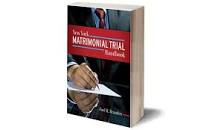
Trial Testimony - Cross Examination - Modes of impeachment
The main purposes of cross-examination are to elicit favorable facts from the witness, or to impeach the credibility of the witness. To be effective the cross-examiner should, in effect, testify and the witness should agrees with or adopt the facts of the question. This is accomplished by the use of leading questions, which are questions which suggest the answer and which can only be answered with a yes or no. If a witness who is being cross-examined attempts to explain his answer or attempts to answer a question which is not before that witness in order to deflect the impact of the question, the attorney has the right to object to the non-responsive answer and move to strike it. The attorney has the right to call upon the court to admonish the witness to answer the question as posed. The cross-examiner should only ask those questions which assist his or her case and never allow the witness to repeat testimony elicited on direct examination. It has been said that a cross-examiner should only ask questions he knows the answers to.
In his monograph “The Art of Cross-Examination”, Professor Younger wrote that the generally recognized modes of impeaching the testimony of a witness on cross-examination are:
• Oath capacity
• Perception
• Recollection or memory
• Communication
• Bias - an irrational predisposition in favor
• Prejudice - an irrational pre-disposition against
• Interest a stake in the outcome
• Corruption - bribery
• Prior conviction
• Prior bad acts - immoral, criminal, vicious
• Prior inconsistent statements
• Reputation for veracity.[1]
[1] This list of modes of impeachment is from Irving Younger, “The Art of Cross-Examination”.
The main purposes of cross-examination are to elicit favorable facts from the witness, or to impeach the credibility of the witness. To be effective the cross-examiner should, in effect, testify and the witness should agrees with or adopt the facts of the question. This is accomplished by the use of leading questions, which are questions which suggest the answer and which can only be answered with a yes or no. If a witness who is being cross-examined attempts to explain his answer or attempts to answer a question which is not before that witness in order to deflect the impact of the question, the attorney has the right to object to the non-responsive answer and move to strike it. The attorney has the right to call upon the court to admonish the witness to answer the question as posed. The cross-examiner should only ask those questions which assist his or her case and never allow the witness to repeat testimony elicited on direct examination. It has been said that a cross-examiner should only ask questions he knows the answers to.
In his monograph “The Art of Cross-Examination”, Professor Younger wrote that the generally recognized modes of impeaching the testimony of a witness on cross-examination are:
• Oath capacity
• Perception
• Recollection or memory
• Communication
• Bias - an irrational predisposition in favor
• Prejudice - an irrational pre-disposition against
• Interest a stake in the outcome
• Corruption - bribery
• Prior conviction
• Prior bad acts - immoral, criminal, vicious
• Prior inconsistent statements
• Reputation for veracity.[1]
[1] This list of modes of impeachment is from Irving Younger, “The Art of Cross-Examination”.
The material on our website is from the New York Matrimonial Trial Handbook , by Joel R. Brandes of the New York Bar. It focuses on the procedural and substantive law, as well as the law of evidence, that an attorney must have at his or her fingertips when trying a New York matrimonial action or custody case. It is intended to be an aide for preparing for a trial and as a reference for the procedure in offering and objecting to evidence during a trial. There are numerous questions for the examination and cross-examination of witnesses.
Joel R. Brandes Consulting Services, Inc. publishes The New York Matrimonial Trial Handbook . It is available in Bookstores, and online in the print edition at Amazon, Barnes & Noble, Goodreads and other online book sellers.
The New York Matrimonial Trial Handbook is available in Kindle ebook editions and epub ebook editions for all ebook readers in our website bookstore and in hard cover at our Bookbaby Bookstore.
The New York Matrimonial Trial Handbook is available in Kindle ebook editions and epub ebook editions for all ebook readers in our website bookstore and in hard cover at our Bookbaby Bookstore.
|
Joel R. Brandes Consulting Services, Inc.
2881 NE 33rd Court (At Dock) Ft. Lauderdale, Florida 33306. Telephone (954) 564-9883. email to:[email protected]. Joel R. Brandes Consulting Services, Inc is a Florida corporation which is owned and operated by
Joel R. Brandes of The New York Law Firm of Joel R. Brandes. P.C. |
This website is published by Joel R. Brandes Consulting Services, Inc., and written by Joel R. Brandes of The Law Firm of Joel R. Brandes. P.C. Mr. Brandes has been recognized by the Appellate Division* as a "noted authority and expert on New York family law and divorce.” He is the author of the treatise Law and The Family New York, 2d (9 volumes),Law and the Family New York Forms 2d (5 Volumes), Law and the Family New York Forms 2019 Edition (5 volumes)(Thomson Reuters), and the New York Matrimonial Trial Handbook. Click here to visit New York Divorce and Family Law ™ the definitive site on the web for New York divorce and family law, presented by Joel R. Brandes of the Law Firm of Joel R. Brandes, P.C., 43 West 43rd Street, New York, New York 10036. (212) 859-5079.
|